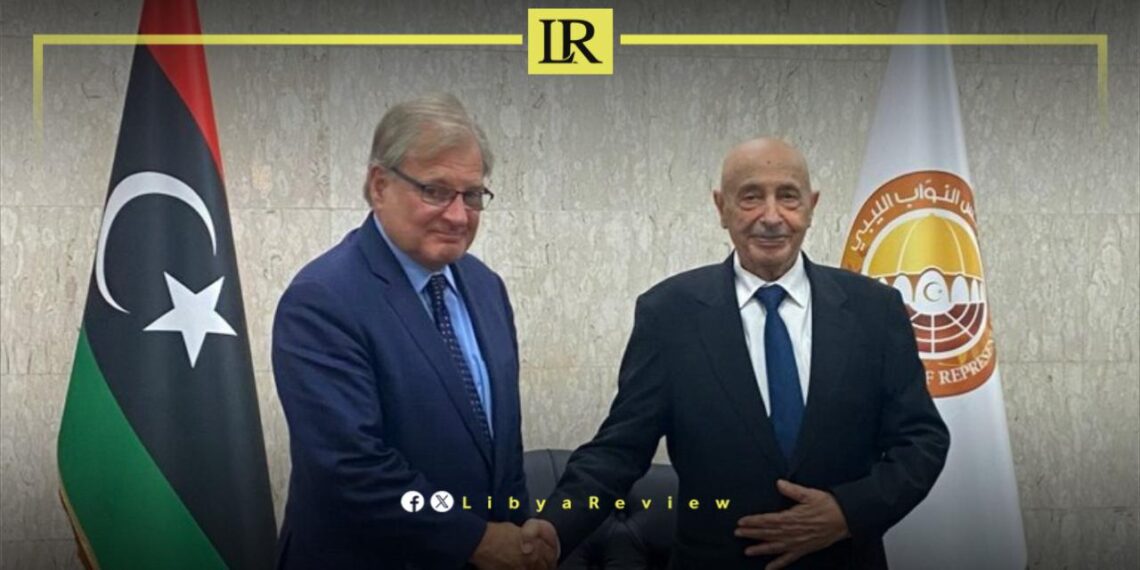The United States (US) Special Envoy and Ambassador to Libya Richard Norland reported a productive meeting with Speaker of the Libyan House of Representatives (HoR) Ageela Saleh in Benghazi. The discussions centered on the necessity of achieving consensus among Libyan stakeholders to advance the political process in Libya.
Ambassador Norland highlighted the importance of unity in the economic sector, stressing the need for a unified budget that incorporates input from stakeholders in both Tripoli and the eastern regions. He reiterated the United States’ support for an inclusive, Libyan-led political process facilitated by the United Nations Support Mission in Libya (UNSMIL).
“The United States supports an inclusive Libyan-led and Libyan-owned political process facilitated by UNSMIL to achieve this consensus to prevent further division, protect the country’s sovereignty and stability, improve service delivery for Libyans from all regions, and advance Libya’s democratic process,” stated Norland.
The emphasis on consensus aims to prevent further divisions, protect Libya’s sovereignty and stability, and enhance service delivery for all Libyans. This approach is seen as crucial for advancing Libya’s democratic process.
Libya has been in chaos since a NATO-backed uprising toppled longtime leader Muammar Gaddafi in 2011. The county has for years been split between rival administrations.
Libya’s economy, heavily reliant on oil, has suffered due to the ongoing conflict. The instability has led to fluctuations in oil production and prices, impacting the global oil market and Libya’s economy.
The conflict has led to a significant humanitarian crisis in Libya, with thousands of people killed, and many more displaced. Migrants and refugees using Libya as a transit point to Europe have also faced dire conditions.
The planned elections for December 2021 were delayed due to disagreements over election laws and the eligibility of certain candidates. This delay has raised concerns about the feasibility of a peaceful political transition.
Despite the ceasefire, security remains a significant concern with sporadic fighting and the presence of mercenaries and foreign fighters. The unification of the military and the removal of foreign forces are crucial challenges.


